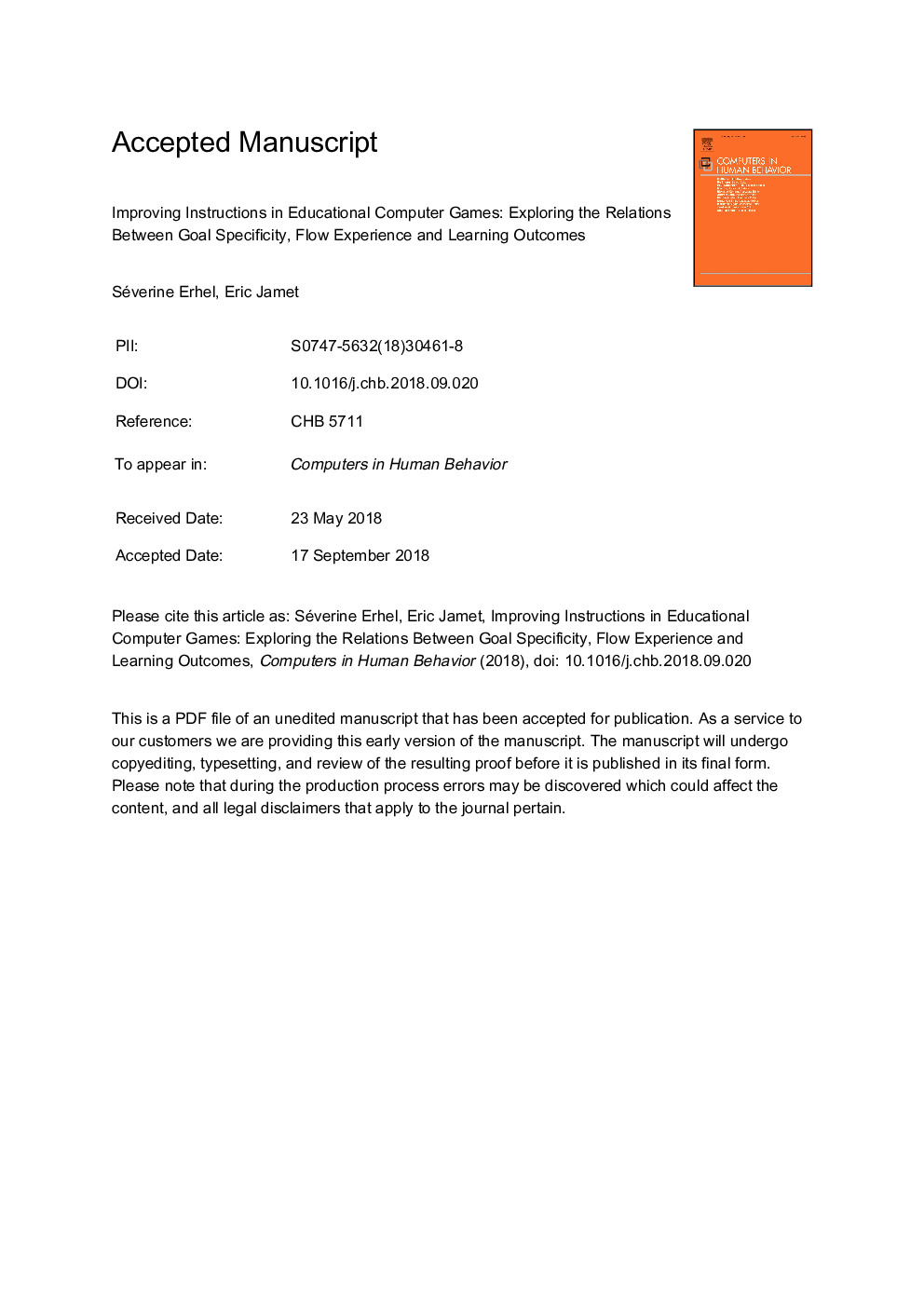| Article ID | Journal | Published Year | Pages | File Type |
|---|---|---|---|---|
| 11024009 | Computers in Human Behavior | 2019 | 46 Pages |
Abstract
We explored the relationship between goal specificity, flow experience and learning outcomes in educational computer games (ECGs). Our first aim was to analyze how goal specificity affects learning performances and reading activities in an ECG. Our second aim was to assess the effects of flow experience on learning with an ECG. Concerning our first aim, results indicated that a nonspecific goal, as opposed to one that is specifically defined in the task, enhances comprehension, but not memorization. It also affects reading strategies, leading to less scrolling back. Concerning our second aim, results highlighted a beneficial influence of flow experience on both memorization and comprehension. We did not observe any effect of goal specificity on flow experience. The results for goal specificity are discussed with respect to the dual space and cognitive load explanations. The relevance of using flow experience to assess motivation in ECGs is also addressed.
Related Topics
Physical Sciences and Engineering
Computer Science
Computer Science Applications
Authors
Séverine Erhel, Eric Jamet,
